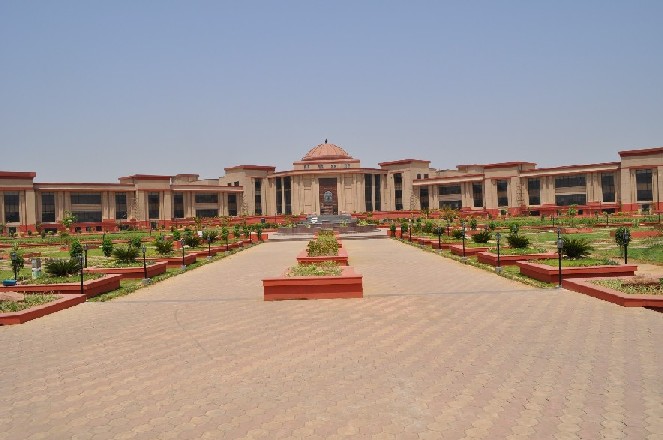Bilaspur (Chhattisgarh), August 30: In a judgment by
Chhattisgarh High Court which has created some controversy, a single judge
bench ruled that forced sexual act with one’s own wife cannot be deemed rape.
However, the HC did not grant any relief to the man who was also charged under
IPC section 377 (unnatural offences) and 498A and he is still under judicial
custody.
Even though many in media and political circles like Mahua
Moitra, Taapsee Pannu and Saayoni Ghosh feel that the judgment might be flawed,
most women’s rights activists feel that this shows that there is an urgent need
for public debate on the issue since there cannot exist an absurd legal
distinction between the rights of a wife below 18 years, and one above that
age.
But Flavia Agnes, eminent lawyer and Human Rights Activist
working for decades on Women’s Rights, talking to the Lifenews correspondent
said, “I feel that the judge was not wrong in not applying the law because
judges cannot put words in the statutes, so since the section is clearly worded
– it is the legislature that has to change it. The legislature should bring in
the amendment and that has not yet happened.”
Also Flavia questioned the intent and competence of the
police because the charge-sheet was written by them and since there is no
statutory provision for marital rape, why did they use those sections? “It
should have been charged under the Domestic Violence Act, apart from 498-A,
since all forcible sexual act or violence constitutes cruelty, and domestic
cruelty could have been addressed by using the Domestic Violence Act.”
A single bench of Justice NK Chandravanshi in Chhattisgarh High
Court acquitted the 37-year-old man in a rape case filed against him by his
wife. While interpreting the statutes governing rape, the court adjudicated
that sexual intercourse between legally married men and women is not rape, even
if it is without the consent of wife.
On August 23, the order was issued in a revised petition
filed by the husband and his family members on charges against the man in a
trial court, and were made public on Wednesday.
The definition of rape as per section 375 of the Indian Penal
Code (IPC) includes all forms of sexual assault involving non-consensual and
consensual intercourse with a woman. However, Exception II to section 375
exempts unwilling sexual intercourse between a husband and wife over 18 years
of age from section 375’s definition of ‘rape’ and thus immunises such acts
from prosecution.
As per the complaint, the married man hails from
Changorabhata in Raipur. In 2017, soon after their marriage the woman’s husband
and her two in-laws allegedly started harassing her for dowry. When she could
not bear the pressure, the woman approached the Bemelara police station and
registered a complaint against the three of them.
The police prepared a charge-sheet after investigations
under section 498-A (dowry harassment), 376 (rape), 377 (unnatural offences),
and others of IPC. Based on this, the woman’s husband and her in-laws
approached the High Court seeking to set aside the order of the trial court and
acquit them.
“In this case, the complainant is legally wedded wife of
applicant, therefore, sexual intercourse or any sexual act with her by the
husband would not constitute an offence of rape, even if it was by force or
against her wish. Therefore, charge under Section 376 (rape) framed against the
applicant’s husband is erroneous and illegal,” the High Court said in its
order.
Since, in India “marital rape” is not recognised and the
same is not an offence in view of Exception II of Section 375, the judge
further stated, “Exception II of section 375 of IPC makes it clear that sexual act
or sexual intercourse by a man with his legally wedded wife, the wife not being
minor (under 18 years of age) is not a rape.” Hence, he is entitled to be acquitted
from the charge under Section 376 of IPC.
There has been a long debate in India over the definition of
marital rape; but people supporting the two sides have not been able to find
common ground.
Women's rights activists have been demanding a law on
marital rape for a long time and they feel that the rights of women should not
be based only on their age. However, due to its complexity, no consensus has
been found in India this far. A section believes that such a law can create new
problems in a traditional society like India. Apart from this, questions have
also been raised about how marital rape will be decided. Many feel that there
is no political will to enact such a law – considering their repercussions
mainly from orthodox patriarchal communities.
One of the news which appeared in various newspapers in
October 2014, quotes a report mentioning that only one percent of the marital
rape is reported in India. A National Family and Health survey of 2018 suggests
that the absence of strong law against marital rape is the primary factor
behind low reporting of the cases.
Prashant Bhushan, Public Interest Lawyer and Activist while
addressing the said judgment says, “Sexual intercourse or any sexual act by husband
with legally wedded wife not rape even if it was by force or against her wish: Chhattisgarh
HC! Ridiculous! Marriage is a license to rape wife?!”
However, Flavia does not support “criminalising marital rape”, she says “firstly it will be very difficult to prove it and secondly, ascribing a higher pedestal to the rape and ignoring or relegating other physical, psychological or economic abuse below it – while one offence attracts seven years and the other only three years is skewed and not logical. Hence I feel we need to have a much more complex framework to understand sexual violence within marriage.”

